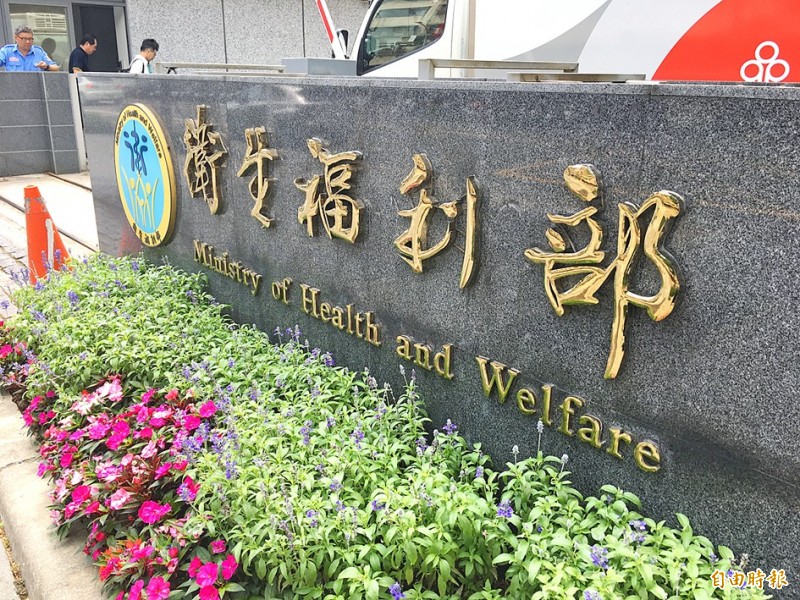《TAIPEI TIMES》 More Taiwanese living in poor health

The wall in front of the Ministry of Health and Welfare in Taipei is pictured in an undated photograph. Photo: Lin Hui-chin, Taipei Times
IRRESPONSIBLE ATTITUDES? Some experts say the NHI system does not do enough to educate the public, or pay doctors to talk to patients, about healthy lifestyles
By Wu Liang-yi / Staff reporter
While the life expectancy of Taiwanese newborns in 2018 reached 80.69 years, the number of years people spent in poor health hit a record high at 8.41 years, Ministry of Health and Welfare statistics showed on Saturday.
Healthy life expectancy is calculated by a person’s life expectancy minus the time they spend in ill health, such as the loss of mobility, disabilities and chronic disease, based on medical records and calculations about the years they live with disabilities.
The number of years that Taiwanese spend in poor health is increasing slowly, but steadily, rising by 0.46 years, or five-and-a-half months, between 2012 and 2018, Department of Statistics Lee Chiu-yen (李秋嬿) said.
The trend corresponds to the phenomenon of Taiwan becoming a superannuated society, said Chiou Hung-yih (邱弘毅), a professor of public health at Taipei Medical University.
It also highlights the dual problem of people generally having an “irresponsible” attitude toward their health and the authorities not allocating enough funds under the National Health Insurance (NHI) system for education about maintaining good health, Chiou said.
The NHI system emphasizes treatment and is neglecting public health at large, he said.
Some people do not take their medicine on time and develop a protracted period of poor health, while others started an unhealthy lifestyle early on, he added.
Physicians only focus on treating patients and do not educate them about their health, as doing so would not bring them extra subsidies under the NHI system, he said.
That NHI premiums have not risen has also led many people to take treatment for granted and ignore what they can do for themselves to stay healthy, he said.
Chen Ying-jen (陳英仁), a geriatric specialist at Linkou Chang Gung Memorial Hospital, said the nation’s universal healthcare and quality caregivers means that people are living longer in poor health.
There is also a problem with with how Taiwanese view death, as many people would rather their family members live on life support than die, Chen said.
Taiwanese need more education about quality of life and how to deal with situations when all the medication and treatment available have failed, as well as the prospect of having to go into hospice care, he said.
Statistics showed that the number of years people lived in poor health dipped in 2016, which the ministry attributed to a major cold front that aggravated cardiovascular and lung problems and led to an increase in deaths, adding that pneumonia was the third-most common cause of death that year, and life expectancy was reduced by 0.2 years.
新聞來源:TAIPEI TIMES

















